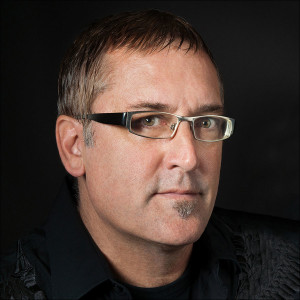Journalism Graduates to Be Recognized at May Commencement Ceremony
The Program Will Begin at 4:30 p.m., Saturday, May 16, at Mizzou Arena
Columbia, Mo. (May 6, 2015) — The Missouri School of Journalism will recognize 460 students at the 4:30 p.m. commencement ceremony on Saturday, May 16, at Mizzou Arena. Seating is open, and no tickets are required.
Graduate degrees will be awarded to 6 doctoral candidates and 42 master’s students, 7 of whom earned their degrees online.
Of the 412 undergraduates, 31 studied convergence journalism; 52, magazine journalism; 13 photojournalism; 53, print and digital news; 62, radio and television journalism; and 201 strategic communication.
Of the graduating seniors, 135, or 33 percent, earned Latin honors by achieving at least a 3.5 grade point average.
The top 10 percent of the School’s graduates will be inducted into Kappa Tau Alpha, a journalism honor society founded at the School of Journalism in 1910. The KTA reception will be held before the graduation ceremony from 1-2:30 p.m., Saturday, May 16, in 100-A Reynolds Journalism Institute. The 34 new members of Kappa Tau Alpha are:
Doctor of Philosophy
Teri Finneman and Gregory Perreault.
Master of Arts
Jane Brannen, Victoria Clayton-Alexander, Kevin Drew, Maura Hohman and Amy Roberts.
Bachelor of Journalism
Colleen Barry, Caroline Bauman, Jamie Beard, Erin Lou Burris, Erin Lou Burris, Delia Cai, Danielle Chronister, Blair Cooley, Emily Dayton, Morgan Denlow, Andrew Feather, Margaret Hallam, Andrea Jankelow, Rebecca Johnson, Andrew Kauffman, Rachel Koehn, Amanda LaBrot, Katie Link, Kathryn Mersmann, Genevieve Reaume, Megan Schaff, Megan Schultz, Allison Schnitker, Amy Silvestri, Andrea Sims, Ciera Velarde, Stephanie Watson and Greta Weber.

The alumnus speaker will be Brian Smith, BJ ’81, a Pulitzer Prize-winning photographer. For the past 30 years, his iconic portraits of famous celebrities, athletes and executives have been used in advertising, by corporations and have graced the covers and pages of hundreds of magazines including Sports Illustrated, ESPN the Magazine, The New York Times Magazine, Time, People, Forbes, Billboard, Elle and GQ.

His first magazine photograph appeared in LIFE Magazine when he was a 20-year-old student at the Missouri School of Journalism. Five years later, he won the Pulitzer Prize for Spot News Photography for his photographs of the Los Angeles Olympic Games. He was again a finalist for the Pulitzer for his photographs of Haiti in Turmoil. He’s received awards from Pictures of the Year, World Press Photo, Best of Photojournalism, Communication Arts and American Photography.
He’s the author of three books and his photographs have been exhibited at the Library of Congress, American Museum of Natural History and Aperture Gallery in New York. He has appeared on The X Factor and Fine Living Network. He and his wife Fazia Ali live in Miami Beach.

The student speaker will be Matt Ingram, a dual major in strategic communication and theatre, with minors in Spanish and English. He also will earn a multicultural certificate. Academic honors include being a Walter Williams Scholar and a recipient of the Mark Twain scholarship. Ingram served as the content manager for his MOJO Ad team, and the group won the client award for their campaign for Blue Diamond Almond Breeze. He helps promote and performs with the GreenHouse Theatre Project, a nonprofit theatre company based in Columbia. The group plans an August performance at the Edinburgh Fringe Festival in Scotland.
The master of ceremonies, Katie Moeller, will graduate with a bachelor’s degree in radio-television journalism. A St. Louis native, she currently holds the title of Miss Spirit of St. Louis and will compete for the title of Miss Missouri in June. Academic honors include being a Walter Williams Scholar, Discovery Fellow, Bright Flight recipient, Curator’s Scholarship recipient, Herrick Journalism Scholarship recipient, and a member of the dean’s list. Moeller will continue her education at the Missouri School of Journalism as a master’s student. She will begin her studies in public affairs reporting and serve as a graduate teaching assistant.
[SlideDeck2 id=39173]
Text of Commencement Addresses
Matt Ingram, BJ ’15
Students at the School of Journalism don’t know how to sit still.
Spend five minutes in the Reynolds Journalism Institute lobby any given weekday afternoon, and you’ll see packs of well-dressed young people scurrying from point A to point B like adorable, starving animals searching intently for a treat you’ve told them is hidden somewhere nearby but they’ve still got to use their noses to find it.
For the last four years, we’ve been going non-stop, refusing to take a breath or blink lest we miss the opportunity to do something awesome.
Well, it might be hard to believe, but this is a chance to stop. Right now. Just for a second.
Take a breath. Blink a few times. Look around. You are so cool, Class of 2015.
You’re sitting here right now for a number of reasons – talent, intelligence, curiosity. Sure. But what brought you to the J-School was your restlessness – your instinctual need to work until you’ve made an imprint on the world. And look where that instinct has taken you. In this crowd of your peers sit journalists, advertisers, photographers, world travelers, thinkers, award winners, academics – and not just in theory, but in practice.
The first writing class we take here starts by assigning students to do something outside of their comfort zones and then write about it. The idea that we should be discomforted pervades the curriculum. We improve our work (be it a story, a package, a campaign) by stepping outside of our individual understandings and seeing the world in new ways. This simple, powerful thought from newswriting ties into what might be the best advice I’ve ever received: Do what terrifies you. The J-School did us a huge solid favor by emphasizing this.
Graduation is inevitably a time to face the awful cliche truth that what we do can change the world. But it can. That is the task to which we’ve called ourselves. If that excites or terrifies you – or maybe a little bit of both – good. As we enter a phase of our lives that until now has only been an ominous abstraction referred to tritely as “the real world,” we’re going to face challenges and opportunities that welcome us into that glorious space just outside our comfort zones.
We’ve learned here how to wield our mighty weapon – The Pen – to do something about the other scary things in the world. So when you have the opportunity to use your voice to be cool or smart or subversive, the best thing you can possibly do is high-five that tingly feeling nesting in your gut and use your voice.
The butterflies we feel in our stomachs when we’re nervous, excited or scared are our greatest assets. They tell us, “This is it. This is your chance to chart new territory.” And what is today if not a nerve-wracking, exciting and terrifying first step into the unexplored?
Whatever road you’re on, keep your head up and your pace steady. Because there’s nothing else to do. Because you’re ready. Because you know sitting still isn’t an option.
Congratulations.
Brian Smith, BJ ’81
Greetings honored graduates, distinguished faculty and generous parents who paid handsomely to bring you together.
It’s great to be back in Columbia!
I’d like to thank Dean Mills for the honor of addressing you today and also congratulate him on expertly guiding the School of Journalism for the past 26 years. May future leaders of Missouri’s School of Journalism always remember the example you set over the last quarter century whenever they hear the word “Dean…”
I was truly humbled and honored when I received Dean Mills’ request to speak to you today. My deepest thanks goes to David Rees and Rita Reed for their role in bringing me here. The photojournalism program could not possibly be in better hands, my friends. Cliff Edom and Angus McDougall would be proud.
This was such an unexpected honor and even my lovely wife was moved to say, “Wow, that’s really amazing!” Then she continued, “I would have expected Missouri would have asked one of their famous graduates like Brad Pitt or Jon Hamm.”
And that would be the one and only time my wife has ever compared me to Brad Pitt and Don Draper.
Aware that a commencement speech is a 10-minute delay of your post-graduation celebration, I asked a friend who makes his living making people laugh for a few tips to make this speech as entertaining as possible.
“You have absolutely nothing to worry about,” he said, “if they wanted an entertaining speech they never would have asked you…”
Never forget that while it’s great to have friends who tell you what you want to hear, truly great friends will tell you the brutal truth whether or not you want to hear it.
With that in mind I decided to roll up my sleeves and give this speech the old college try. In other words, I’ve been “thinking” about “writing” this for the last six months, but I actually finished it about five hours ago.
What can I say? I work well on deadline.
Here are 10 things I wish someone told me on graduation day.
1. Work harder. Success is 10 percent talent and 90 percent hard work. Talent may get you in the door, but hard work will separate you from the pack. If you want to succeed, you need to work harder than the next guy or gal. Hard work pays off.
2. Never stop learning. Never give up your thirst for knowledge. Your best asset as a journalist is to engage people and to possess the ability to strike up a five-minute conversation on absolutely any topic. One day soon you’ll realize the value of all your Arts and Science elective classes.
3. Talk to strangers. Apologies to your parents who warned you as a child not to talk to strangers, but it’s time to remove that warning label. I tell young photographers that the best thing they can do to become a better photographer is to search out 50 strangers and photograph them in a way that reveals not merely what they look like – but who they are. The single most important thing any journalists can learn is how to speak to people, figure out what makes them tick so you can relate to them in a way that makes them feel comfortable enough to relax and tell you their story. There are no tricks or gimmicks to this. Simply be genuine. Whether you love them or loathe them, be genuinely interested in the people you’re covering.
4. Swing for the fences. When you have a great opportunity, don’t play it safe. One of the greatest assignments of my career was as part of a three-photographer team covering the Los Angeles Olympics for the Orange County Register. Our competition had a team of 28. There simply was no way the three of us could sit shoulder-to-shoulder with them. So my boss, Ron Mann, told us to forget the safe shot everyone else was taking. Look for the shot everyone else was missing, and he’d have our backs if we tried and failed – as long as we gave it our best shot. Take your shot! The greatest failure is failing to try. There’s a lesson here for those of you who will one day be editors or producers. If you want great work, stand behind the people you ask to produce it.
5. Sweat the small stuff. Forget everything you’ve been told about “not sweating the small stuff.” Journalism is all about the small stuff. Pay attention to the smallest details as they often tell the story. Your attention to detail will separate you from the pack.
6. Tell stories. I don’t mean the type of stories Brian Williams and I tell about our missions flying fighter jets with J. Lo over Iraq. As journalists, we should never be the story. We have the opportunity – indeed the obligation – to speak for those who don’t have a voice. I feel immensely fortunate to have witnessed both the greatest and worst moments in many people’s lives. Never forget our obligation to the truth at those moments. I can’t imagine anything that surpasses the front row seat you will have witnessing history. To quote a Chinese proverb: “May you live in interesting times.”
7. Embrace new technology and methods of communication. When I was in school, no one considered the possibility of telling a story in 140 characters but social media has opened up new opportunities to communicate to people we might never have reached. The tools and medium may change but content is always king. An iPhone placed in the hands of a trained photojournalist is a great tool, but smartphones alone should never replace a photo staff. Yes, I mean you, Chicago Sun-Times.
8. Treat every assignment as if it’s your dream job. If you are trying to move up to a better job or better assignments, treat every assignment as though it’s your dream job. If you’re working at a small weekly newspaper and your dream is to work for a large metro, approach every assignment as though it was your first week at your dream job. The same is true if you are at a large metro newspaper and dream of working for Vanity Fair. Treat every single assignment as though it’s for your dream client. Don’t slide by now with the idea that you can raise the quality when you get your dream job or you’ll never get there. The truth is that as you move up the ladder the assignments don’t necessarily get any better, the expectations just get higher. Raise your game NOW.
9. Prepare to get lucky. Never apologize for luck. Some of my best photographs were sheer dumb luck. But here’s the thing – the harder you prepare, the luckier you get. Luck is a bi-product of hard work and preparation.
10. Never work a single day. Once you find something you love to do, become the best at doing it, and you’ll never work a single day in your life. Journalism – when practiced properly – is never a job. It is a calling. Since graduating from Mizzou, I’ve lived what can only be described as a charmed life. I’ve told Bill Gates exactly what to do for an entire hour, dined with the president, hung out with a billionaire on his private island, shared cupcakes with Anne Hathaway and gotten drunk with George Clooney – all in quest of a great portrait. Does that sound like work to you?
And now, just for Spinal Tap fans, the numbers go to 11!
11. Don’t forget to have FUN! If you want to be better at what you do, have more fun doing it. Hopefully each of you chose this path not for the money, but because you love it. You probably won’t get rich. In fact, the only way I can guarantee that you can make a small fortune in journalism is to start with a very large one. Yet, journalism can enrich your lives is ways few can imagine. Never forget how fun it can be.
Today is your day to breathe the rarefied air of this accomplishment that you’ve worked so hard to achieve. Celebrate tonight with copious amounts of rarefied beverages. You deserve it.
Don’t be alarmed when one day soon the clouds lift and you realize the mountaintop you stand upon today is actually base camp and the summit towers an endless climb above you.
Your climb has just begun.
Your journey will get steeper, yet the view gets better with each step you take. Not every step will be straight up the mountain. Expect a few slips and slides along the way that might leave you battered and bruised. But keep going. Don’t give up.
At times you will struggle to catch your breath so take your time as you ascend. Those who take one step at a time can savor the view much more than those in a rush to the top. The climb will be dizzying. You may feel sick to your stomach as you glance over the edge. At times you may be ready to give up hope of going on. Don’t give up.
Savor every step of your journey, and you shall enjoy a view that few others ever see. It’s truly the journey – not the destination – that shall enrich your lives in ways few could imagine.
In closing, I’ll share these last few words from my favorite anchorman, “Stay classy, Columbia!”
Updated: September 8, 2020